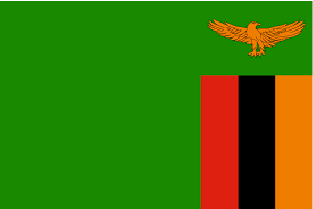The Labour Rights Index 2024 (LRI 2024) is a de-jure index covering 145 economies and structured around the working lifespan of a worker. In total, 46 questions or evaluation criteria are scored across 10 indicators. The overall score is calculated by taking the average of each indicator, with 100 being the highest possible score. The Index uses a rating system, ranging from “Total Lack of Decent Work” to “Decent Work”. The Labour Rights Index aims at an active contribution to the Sustainable Development Goals, by providing necessary (complementary) insights into de jure provisions on issues covered in particular by SDG8 (Decent Jobs), SDG 5 (Gender Equality), SDG 10 (Reduced Inequalities) and SDG 16 (Strong Institutions). The Index is based on national labour legislation, applicable on 1 January 2024.
Zambia’s overall score is 66.5 out of 100. The overall score for Zambia is greater than the regional average observed across Sub-Saharan Africa (66). Within the Sub-Saharan Africa region, the highest score is observed for Côte d’Ivoire (84.5).
Zambia ratified Convention No. 87 on Freedom of Association and Protection of the Right to Organise (1948) in 1996 and Convention No. 98 on the Right to Organise and Collective Bargaining (1949) in 1996.


